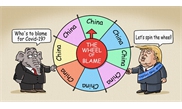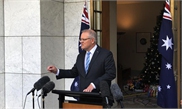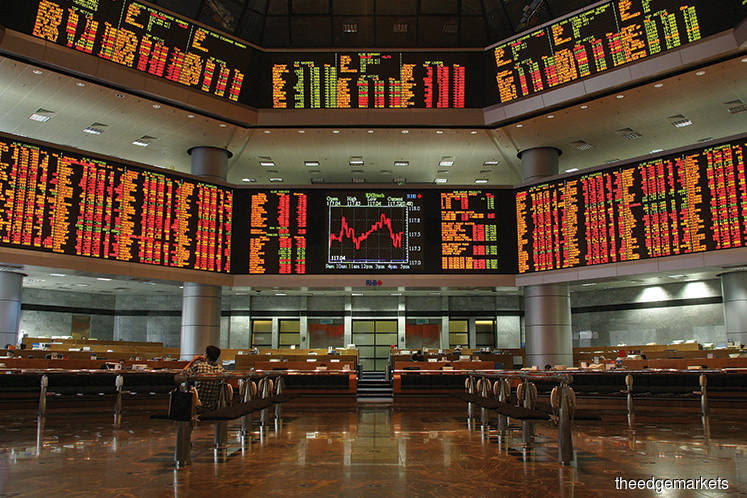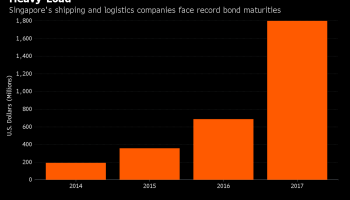 |
| US President Donald Trump File Photo: AFP |
https://youtu.be/Vbb-i3b7E4M
Political dysfunction defines U.S. COVID-19 response
https://youtu.be/0cI2hjyutcs
US registers millionth case as pandemic lockdowns ease ...
We Are Living in a Failed State - The Atlantic
https://youtu.be/_TkbCjUrYKIHow do Americans view Trump's anti virus performance? https://youtu.be/Nl5JZVueLkg
Jon Meacham On Trump's Handling Of Virus: 'This Isn't Paintball, This Is Life Or Death'
https://youtu.be/_OqenizEjk4
https://youtu.be/Sjr8t_4iRno
https://youtu.be/utw27J7Z1BQ
COVID-19 might have spread in U.S. earlier than previously thought: expert
https://youtu.be/anFUPp7mvhc /div>
Richard Horton: We should work together with China fighting COVID-19
https://youtu.be/yCnSEzRedGoIt's unthinkable that US media outlets would call their own country a "failed state." The term was once used to describe US adversaries such as Iran and Iraq.
The US think tank Fund for Peace started its annual report called Failed States Index in 2005. It has been renamed the Fragile States Index and is produced jointly with Foreign Policy magazine. It didn't take long for the US to be included in the index.
 US political scientist Francis Fukuyama, who once believed history would end with liberal democracy as the final form of government for all countries, has since changed his mind, writing in his 2016 article "America: the failed state" that the US should give up "entirely on global leadership." In another article titled "We Are Living in a Failed State" published by The Atlantic, staff writer George Packer said that the coronavirus has made the US "a beggar nation in utter chaos" and that "like France in 1940, America in 2020 has stunned itself with a collapse that's larger and deeper than one miserable leader."
US political scientist Francis Fukuyama, who once believed history would end with liberal democracy as the final form of government for all countries, has since changed his mind, writing in his 2016 article "America: the failed state" that the US should give up "entirely on global leadership." In another article titled "We Are Living in a Failed State" published by The Atlantic, staff writer George Packer said that the coronavirus has made the US "a beggar nation in utter chaos" and that "like France in 1940, America in 2020 has stunned itself with a collapse that's larger and deeper than one miserable leader."Many people in China who once worshiped the US are not taking any pleasure in witnessing the decline of the US. China cares about Americans.
"As of April 20, China had provided the US with over 2.46 billion masks, meaning seven masks for each [person] in the US, plus nearly 5,000 ventilators" and many other types of medical equipment, Chinese Foreign Ministry spokesperson Hua Chunying said on Twitter on Thursday.
China does need to take a lesson from the US and examine why the once great country has failed to protect its people, fallen into political division, been stunned by corruption and unparalleled social divide?
China must continue to be wary of US radical policies, including making China a scapegoat for its failures. The news site Politico reported on Friday, that the National Republican Senatorial Committee "has sent [election] campaigns a detailed, 57-page memo authored by a top Republican strategist advising GOP candidates to address the coronavirus crisis by aggressively attacking China." According to Politico, "Republicans have indicated they plan to make China a centerpiece of the 2020 campaign."
Attempts to stigmatize China reflect the degradation of the US. The Trump administration's radical policies that at first seem to create an advantage actually damage the US.
Over the last three years, the Trump administration has nearly destroyed the foundation of international order that's been in place since the end of the Cold War. It has pulled out of the Trans-Pacific Partnership, the Paris Agreement, the United Nations Human Rights Council, the Intermediate-Range Nuclear Forces Treaty, and many other international treaties and organizations.
Over the past three months, the Trump administration has doubled the Federal Reserve's balance sheet via measures including quantitative easing and strong stimulus policies, making US dollar the most unstable factor in the global monetary order. It has also severely shaken the international financial system. Global assets are now facing the risk of suddenly plunging or skyrocketing at any time.
Over the past three weeks, the Trump administration has escalated the international oil price war, causing oil prices to collapse. For the first time in history, crude oil was trading at negative prices on April 20, disturbing the global energy market, and making the US withdraw from the oil hegemony system that it has maintained for half a century.
Over the past three seconds, Trump might have made even more startling statements again. Numerous people are wondering how the US system can tolerate such a person as a president. The Washington Consensus is dead, the beacon of democracy, freedom and human rights that the US has long adhered to has collapsed.
The current US government, which most US elites are dissatisfied with, is not only hurting itself, it also wants to harm China. The US scapegoating China makes the US look like some immoral person spitting at an innocent person. The signing of the TAIPEI Act and seeking compensation from China for coronavirus losses are without doubt equivalent to clenching its fists and getting ready to throw punches.
It is like a bad kid who gets low marks, blames others and even undermines their chances of passing the exam.
China will not get stuck in the blame game with the US, nor will it become a grave good of a declining US. Going its own way is still key for China. China is confident of doing a good job in not only containing the virus, but also resuming economic activities.
It is a pity that the Trump administration seems to have opened this Pandora's box, allowing fighting, division, unpredictability and selfishness to spread around the world. The US is no longer the world's dominant force, but it is still powerful. If it continues its willful misbehavior, Washington will bring disaster not only to the US, but all of human kind.
Nobel laureate in economics, Joseph E. Stiglitz, once wisely noted; "The only way forward, the only way to save our planet and our civilization, is a rebirth of history. We must revitalize the Enlightenment and recommit to honoring its values of freedom, respect for knowledge and democracy."
The author is professor and executive dean of Chongyang Institute for Financial Studies at Renmin University of China, and executive director of China-US People-to-People Exchange Research Center. His latest book is Great Power's Long March Road.wangwen2013@ruc.edu.cn
Source link
Read more:
1 million COVID-19 infections show US no super power
The number of confirmed coronavirus cases in the US exceeded 1 million on Tuesday, making the country the only one with more than a million infections. More than 56,000 people have died from COVID-19 in the US. On Monday, global coronavirus cases passed 3 million, meaning one in three patients is in the US. The US government has failed its people and also failed the world.Americans to suffer from Trump's buck passing
The US response to the epidemic is undoubtedly one of the worst in the world. While the country's powerful elites should shoulder inescapable responsibility, the Trump administration's wrongdoing turn out to be mostly blameful.Case shows the US most guilty of impeding freedom of speech
If this were about a Chinese girl, the US media would be enjoying a carnival: They might try their best to contact the family to get some words they can use to maliciously make up stories.
Provoking human civilization must be rejected
The racist remarks about the novel coronavirus and the subsequent racial discrimination, racial contradictions and racial conflicts are all blatant provocations against modern civilization that should be resisted by the international community. All responsible media in the world should firmly adhere to justice and jointly protect the basic values of human civilization. Respect for science will win COVID-19 fight
Respect for science will win COVID-19 fight
There is no way either of our countries can deal with transnational challenges like pandemics or climate change acting alone.Morrison's adventurism could damage China-Australia relations beyond repair
Australian Prime Minister Scott Morrison made a series of phone calls last week to several world leaders, including US President Donald Trump, German Chancellor Angela Merkel and French President Emmanuel Macron, appealing for their support of Australia's “independent” inquiry into “the origin and spread” of the COVID-19 outbreak, with China as the thinly veiled target.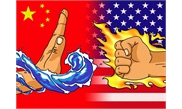 Political motives behind China smears
Political motives behind China smears
China's achievement in the fight against COVID-19 is way better than that of the US. But China is confronting waves of accusations, which have been launched by Washington, and supported and followed by other Western countries and forces.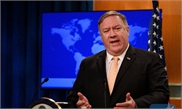 Pompeo an enemy to world peace
Pompeo an enemy to world peace
Lies may fulfill Pompeo's personal ambition, but they will never accomplish the US dreams to be "great again." Pompeo is not only a figure harmful to world peace, but also should be listed as the worst US secretary of state in its history.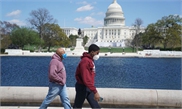 Anti-virus gap with China to crush Washington lies
Anti-virus gap with China to crush Washington lies
A country's public image is ultimately earned by its efforts, rather than empty talk or lies. Chinese people should keep calm and maintain confidence and patience.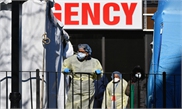 WHO should probe US' virus misconduct
WHO should probe US' virus misconduct
Since the situation is grave, we strongly call on the WHO to intervene in the investigation in the US' initial COVID-19 spread. The WHO's participation can ensure that the investigation is not distorted by the upcoming presidential election. It can also ensure that the conclusions are scientific rather than simply catering to politics. People need to see true reports that are responsible for history.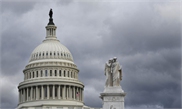 Hooliganism infects US judiciar
Hooliganism infects US judiciar
The “blame China” campaign is nothing more than a publicity stunt by the US. Lawyers and organizations involved don't expect to win; they care more about the news coverage such a lawsuit would garner than the result itself. This also applies to the Trump administration. RELATED ARTICLES:
- It's the US, stupid!
- COVID-19 blunders signal end of ‘American Century’
- Political motives behind China smears: Global Times editorial
- Pompeo an enemy to world peace: Global Times editorial
Related posts:
Colonialism https://youtu.be/Ha6dehSZn_Y COVID-19: Why do origins matter? https://youtu.be/rwt0KrzCbRQ Trump's gang sel...
Recently, Germany’s largest newspaper ‘Bild’ published an invoice amounting to €149bil that Beijing ‘owes’ Berlin from the impact of Co..
Enough is enough. Enough hypocrisy for this one world. What do you want from us, anyway? What Do You Really Want from Us? ..
 Fox News COVID-19 conspiracy theory 'REVENGE' shamed by China’s epidemic control; its unscrupulous manipulation, berated as fake news hub, hits new low on politicizing disease !!
Fox News COVID-19 conspiracy theory 'REVENGE' shamed by China’s epidemic control; its unscrupulous manipulation, berated as fake news hub, hits new low on politicizing disease !!
 Fox News COVID-19 conspiracy theory 'REVENGE' shamed by China’s epidemic control; its unscrupulous manipulation, berated as fake news hub, hits new low on politicizing disease !!
Fox News COVID-19 conspiracy theory 'REVENGE' shamed by China’s epidemic control; its unscrupulous manipulation, berated as fake news hub, hits new low on politicizing disease !!Hundreds of activists gather outside Fox News HQ on March 13, 2019 to protest against Fox News host Tucker Carlson over his controversia...
Trump Is Lying. He Did Not Take Coronavirus Seriously for Weeks https://youtu.be/HImj__5VoiM https://youtu.be/XfbvLn3DgV8 http...
https://youtu.be/DPt-zXn05ac

